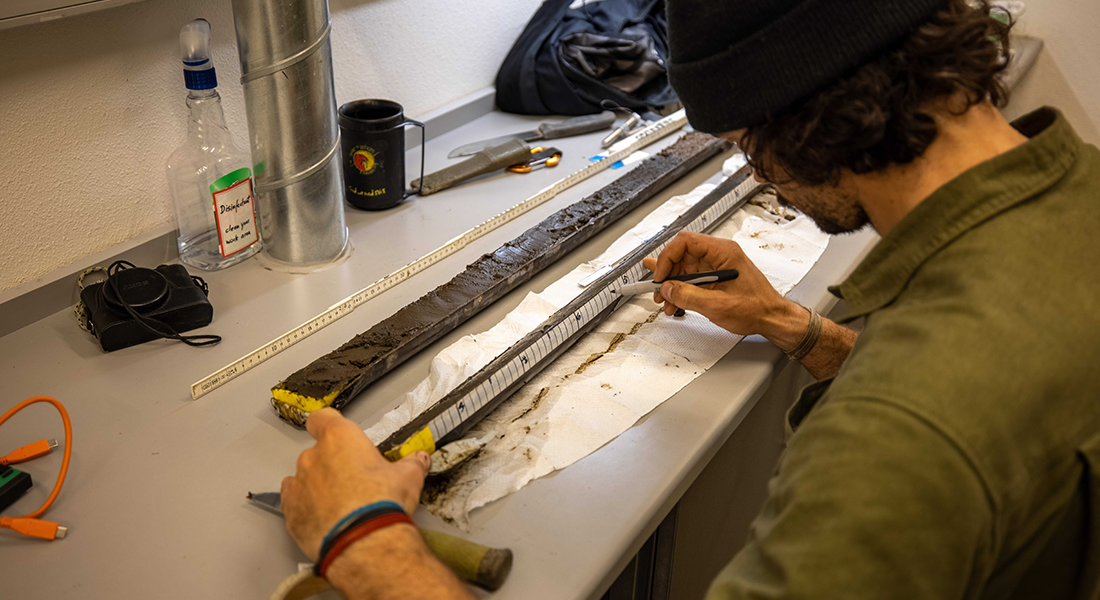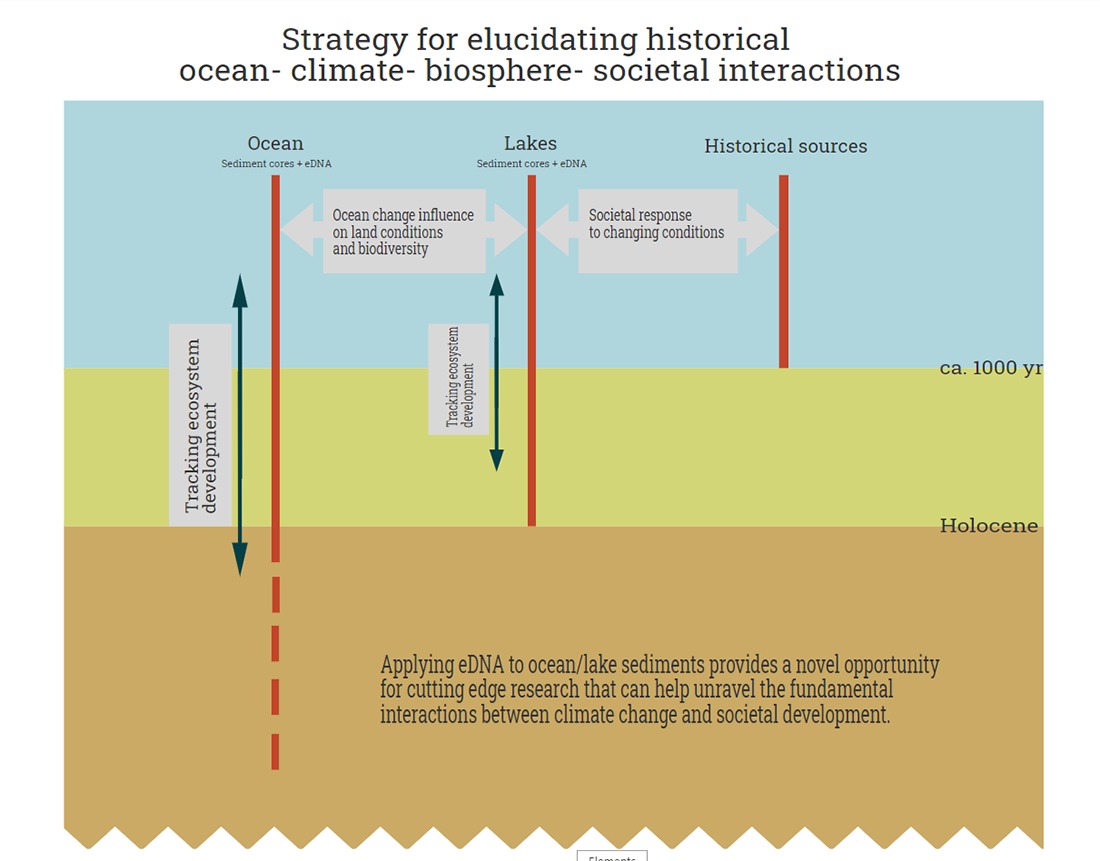Research at ROCS
This trans-disciplinary centre quantifies and analyses the historical relationships between ecosystem structure and climate development in marine and terrestrial environments on and near Iceland. This enables a new understanding of how the Icelandic population has been impacted by changes in ecosystem services caused by climate change as well as how this change has been recognised in the society and how human interference has impacted ecosystems around them.

The ROCS research program has three main thrusts:
Collection and analysis of marine and lacustrine (lake) sediment cores for the presence of ancient DNA
By dating the core layers and analyzing the DNA present in each, the aim is to describe the structure of the ecosystems through paleo-history. A particular focus is elucidating marine plankton ecosystem structure through time and relating this to climate conditions as this will allow the testing of the hypothesis that changes in phytoplankton activity and composition may be related to changes in atmospheric CO2 concentrations
Mapping of ecosystem structure and processes in relation to climate-relevant variables in the contemporary ocean
Understanding how ecosystem structure and ecosystem processes, i.e., transfer of biogenic carbon from surface to the deep layers of the ocean, in today’s ocean with respect to (especially) temperature and light/nutrient availability will help us interpret the signals we find in the marine sediment cores and to reconstruct changes in ocean conditions through time.
Exploring human responses to changes in the ocean and land biospheres
Human societies are both dependent upon and contribute to shaping the ecosystems that surround them. When and how societies adapt to changes in the surrounding nature is difficult to study – not least of which because our understanding of historical changes in ecosystem/human relationships has been very superficial. The evolution of ecosystems through time that the analysis of sediment cores for DNA will help us describe open new avenues for understanding the human-nature relationship. In addition to helping us understand how changes in ecosystems influenced the Icelandic people, this project also seeks to understand how human acitvities have impacted natural ecosystems.

